Library
-
Conjunctivitis in Cats
Se trata de un término médico que está formado por el sufijo -itis, que significa inflamación de. Una conjuntivitis se define como la inflamación de la conjuntiva. La conjuntiva es una membrana mucosa, similar a la mucosa de la boca o de la nariz. Esta membrana está formada por una capa de células epiteliales con células secretoras de moco, que cubren el globo ocular y la parte interna de los párpados.
-
Giving Pills to Cats
Administrar un comprimido a un gato puede ser extremadamente difícil …¡incluso para los veterinarios más experimentados! La manera más fácil es escondiendo la pastilla dentro de la comida. Normalmente, funciona mejor si la comida que se usa es muy gustosa para el gato, como atún, salmón, yogur o crema de queso.
-
Cats were once considered solitary creatures. We now know that they are, in fact, social animals who benefit from interaction with their own and other species. However, not all cats are social with other cats. The personality of each cat must factor into the decision to introduce a new cat to your home.
-
Constipation is defined as an abnormal accumulation of feces in the colon resulting in difficult bowel movements. Constipation is a condition seen most commonly in mature, middle-aged cats and can be caused by hairballs, ingestion of foreign bodies, pelvic injuries, or obesity and/or lack of exercise. Megacolon is the most common cause of constipation in cats. In most cases, a diagnosis of constipation can be made on the basis of the cat's clinical signs and medical history. Treatment varies depending on the cause of constipation. The long-term outlook varies according to the cause of the constipation; however, most cats can be adequately managed without surgery and resume normal, healthy lives.
-
Wellness Testing for Cats
Las pruebas que valoran el estado de salud son pruebas destinadas específicamente a detectar signos de enfermedades subclínicas de forma precoz en gatos que están aparentemente sanos.
-
Flea Control in Cats
La pulga más común en el gato y en el perro es la pulga del gato (Ctenocephalides felis), aunque en los gatos también podemos encontrar otro tipo de pulgas como las pulgas de los conejos, ardillas y otro tipo de fauna salvaje.
-
A Coombs test is used to test for a disease called immune-mediated hemolytic anemia (IMHA). IMHA is a condition in which the immune system breaks down or destroys red blood cells, leading to anemia. The test detects the presence of immunoglobulins (antibodies) on the surface of red blood cells.
-
Coonhound paralysis is a sudden inflammation of multiple nerve roots and peripheral nerves in dogs, and occasionally cats. It can be caused by an immune reaction to raccoon saliva. It can also occur in dogs who have not encountered a raccoon. In this case, it is called acute idiopathic polyradiculoneuritis, and its cause is often unknown. Dogs with coonhound paralysis start out with a stiff-legged gait that rapidly progresses to paralysis of all four legs. Good nursing care is essential for recovery.
-
Corneal lipidosis is an accumulation of fatty substances within the cornea. This is caused by genetics (corneal dystrophy), eye inflammation (corneal degeneration), or by an increase in circulating lipids in the body (hyperlipidemia). Visually, lipidosis appears as a sparkly or shiny area of the cornea. It is diagnosed by a thorough eye exam, bloodwork, and patient history. Treatment and prognosis will depend on the cause and may include treatment of underlying inflammatory conditions of the eye, or systemic treatment of elevated lipid blood levels.
-
Ulcerative keratitis is inflammation in the cornea of the eye. The signs of ulcerative keratitis depend somewhat on the cause and how long the condition has been present. There are many potential causes of ulcerative keratitis, including trauma, infection, and abnormal tear production. Antibiotic ointment or drops will be prescribed and it is important to prevent additional trauma to the cornea. Superficial corneal ulcers typically heal within 5 to 7 days. Deeper or more complicated ulcers may take several weeks to heal and may require surgery in addition to medical treatment.


